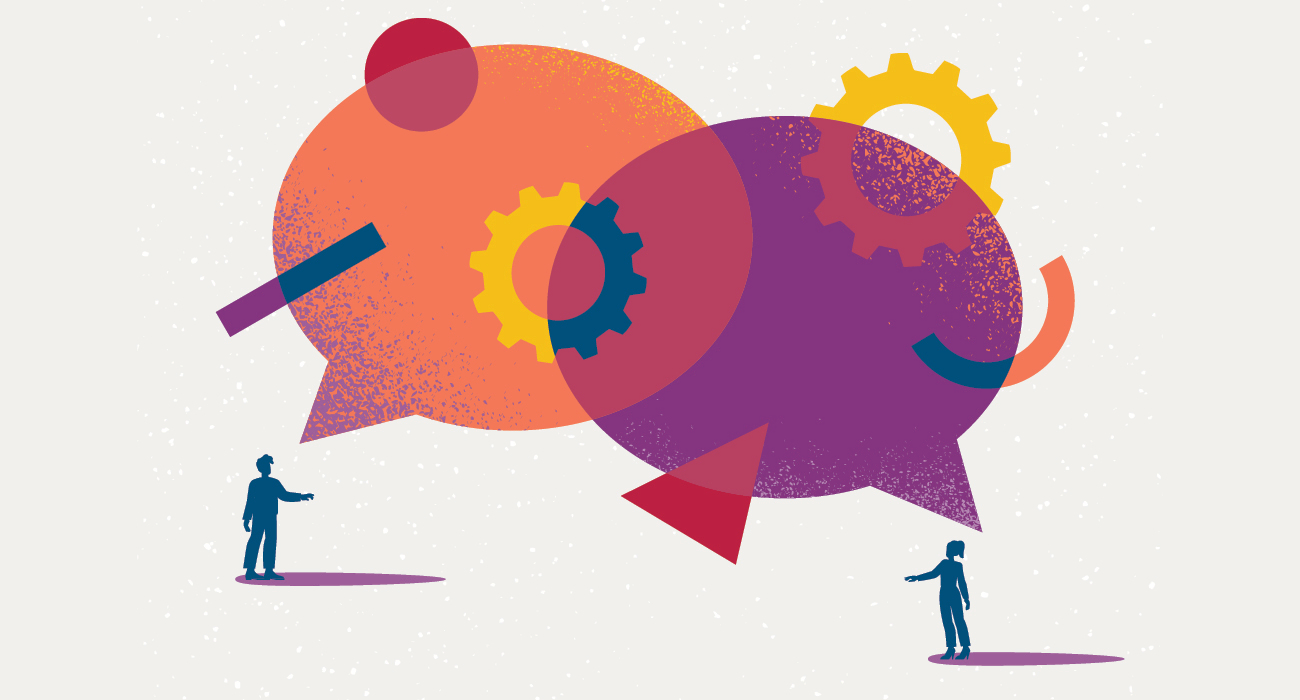Mentorship Programs Help Students ‘Engineer’ a Successful Career
Being an engineering student is tough, and it helps to talk to someone who’s been there, done that. By connecting with a mentor, students can gain valuable knowledge and receive the support they need to achieve success. Finding a good mentor can sometimes be tricky, but for students at the McKelvey School of Engineering, it’s easy to “engineer” a good partnership. The school offers several different virtual and in-person mentoring programs, from flash mentoring to yearlong pairings.
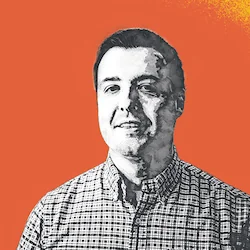
Ian Smith
Master’s degree in information systems management, 2018
Senior Software Developer at Bayer
Connecting with alumni worldwide
Two of the programs use a digital platform (McKelvey CNX for undergraduates and Mentor Collective for graduate students) to connect with alumni around the world. Students can reach out to an alum for a quick chat to answer a specific question or sign up for yearlong one-on-one mentoring to work toward personalized goals.
“Students can seek advice on getting through a tough course, applying for internships, interviewing for jobs, moving up in the industry and finding work/life balance,” says Melanie Osborn, senior assistant dean for engineering study abroad and advising.
Jodi Small, who earned a bachelor’s degree in biomedical engineering in 2015, has served as a mentor for more than five years with McKelvey CNX. “By sharing the knowledge I’ve gained, I can help the next generation of students be successful,” says Small, an IT manager at Abbott.
Ian Smith, who earned a master’s in information systems management in 2018, agrees.

Jodi Small
Bachelor’s degree in biomedical engineering, 2015
IT Manager at Abbott
“I do all I can to help my mentees achieve great success,” says Smith, a senior software developer at Bayer, who has mentored more than two dozen students through Mentor Collective. “Mentoring is an enriching experience for me.”
Meeting with community leaders
For students looking for mentoring and networking in the local community, McKelvey Engineering offers a program in partnership with the Regional Business Council, where students can get both real-world knowledge from St. Louis business leaders and insight into regional job opportunities.
While at WashU, Nicholas O’Brien, who earned a bachelor’s degree in engineering in 2017 through the UMSL/WashU Joint Engineering Program, participated in this program, which led to his current job in Boeing’s flight simulation labs.
By sharing the knowledge I’ve gained, I can help the next generation of students be successful.
— JODI SMALL
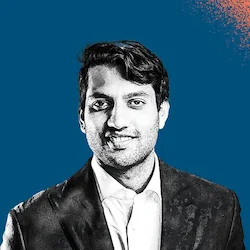
Ashish Heda
Bachelor’s degree in biomedical engineering, 2014
Strategy and analytics manager at Deloitte
Exploring specific companies
McKelvey Engineering also offers several programs in which students are paired with a mentor at a specific company.
O’Brien is involved with the Boeing Mentor Program and trains other mentors at the company. Three of the students he previously mentored now work at Boeing.
“I am a strong believer in mentorship and try to support those behind me as much as learn from those ahead of me,” he says. “This has helped me grow in innumerable ways, keeps me focused and grounded, and helps me stay curious.”
Ashish Heda, who earned a bachelor’s degree in biomedical engineering in 2014, has been involved with the Deloitte Mentor Program for five years.
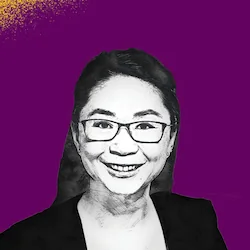
Yun Que
Bachelor’s degree in mechanical engineering, 2009
Quality engineer at BMW
“The Deloitte program is unique because it lays the groundwork for careers in the consulting field,” says Heda, manager of strategy and analytics at Deloitte. “We work with students on resume writing, interviewing, networking and preparing for internships and jobs.”
Supporting women in engineering
The Mastercard Mentor Program pairs members of the Women in Computer Science organization with a woman Mastercard employee to learn how to thrive in a field in which women have historically been underrepresented.
“We need more women engineers because it’s critically important that the people who are mapping out the future of our world and creating the solutions and technology we need to navigate as human beings are representative of the population,” says Christine Dearmont, director of McKelvey Engineering Women & Engineering Center.
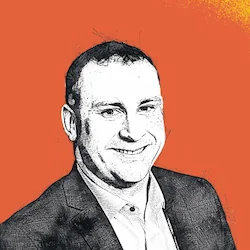
Bachelor’s degree in engineering through UMSL/WashU joint program, 2017
Hardware interface systems manager at Boeing
The center empowers women engineering students to grow in the field through mentoring programs, including one-on-one partnerships, group mentoring based on certain themes or topics, and peer mentoring.
“Women supporting each other in the industry is important,” says Yun Que, who earned a bachelor’s in mechanical engineering in 2009 and is in her first year as a mentor through WE Pairs, the center’s yearlong one-to-one program. “It's great having that perspective and insight from other women because we see and experience the world a little differently.”
Experiencing mutual benefits
By devoting their time to mentoring, alumni can give back to WashU and support future engineers.
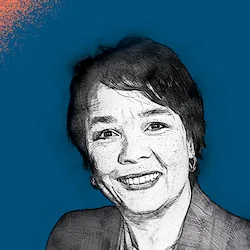
Master’s degree in civil engineering, 1997
VP Global Accounts at iBASEt
“I wanted to give back to the WashU community that gave so much to me,” Que says. “It's inspiring to see the next generation of engineers graduating from the program and entering the industry.”
And it’s not just students who benefit from mentoring — the experience is valuable for alumni as well.
“The students I’ve mentored have become part of my family,” says Pamela Schweppe, who earned a master’s in civil engineering in 1997 and has been involved with WE Pairs for five years. “I helped place two mentees at Lockheed Martin with my extensive aerospace and defense network, and so many of them still reach out to me today. Mentoring has also helped me in my own career. Because of my experience with mentoring and my knack for coaching, I was promoted to vice president of global accounts at iBASEt. Mentoring helped me to expand my role, and I try to pass this along to my mentees.”
Students can seek advice on getting through a tough course, applying for internships, interviewing for jobs, moving up in the industry and finding work/life balance.
— MELANIE OSBORN

